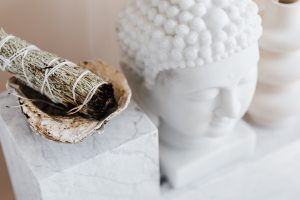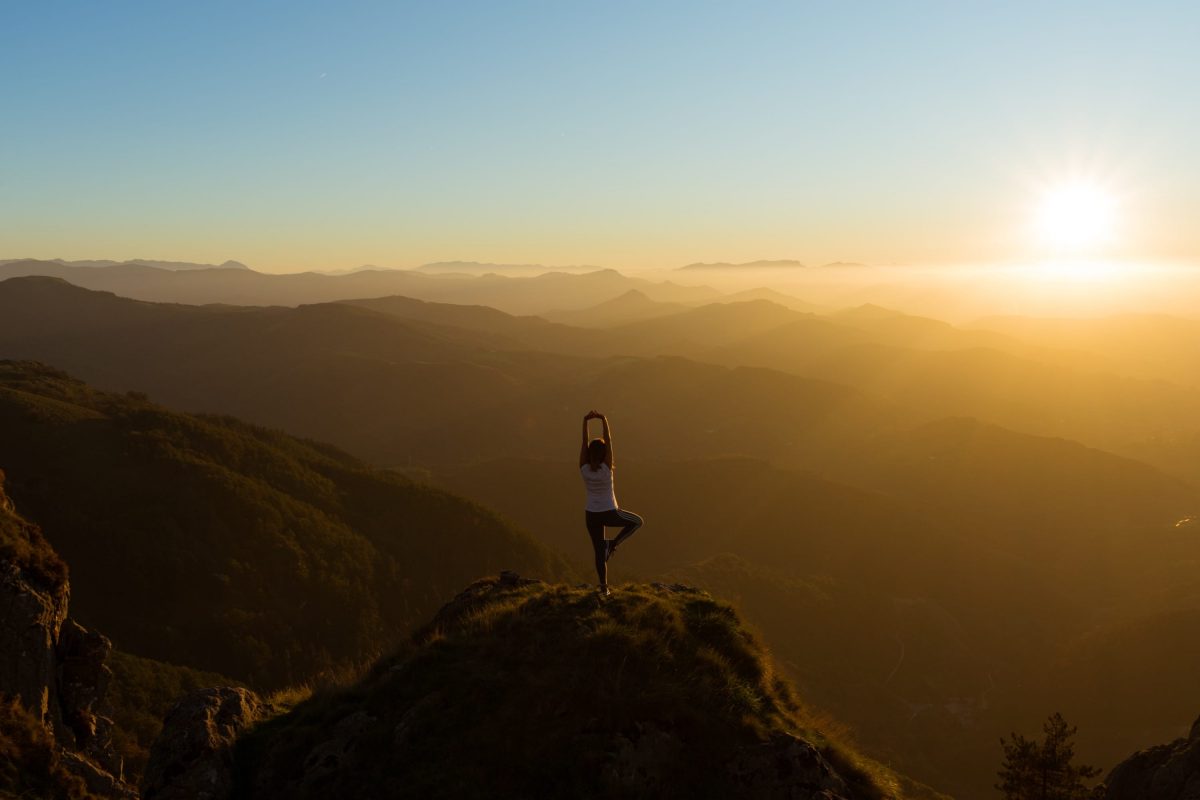Ancient Indian Yogic philosophy identified five Kleshas or ‘afflictions’: Avidya (ignorance), Asmita (egoism), Raga (attachment), Dvesa (aversion or hatred), and Abinivesah (clinging to life and fear of death). Some of the kleshas afflict us daily at a subtle level, yet others can be overwhelming and cause significant pain.
One thing that is common with these ‘poisons’ is that they stop us from thoroughly enjoying life, from being truly present in the now, and from experiencing true freedom.
In today’s world of COVID scenario, we are continually traumatised by negative news about lockdowns, economic stress, social distancing, increasing infections and deaths.
This trauma can be traced to our underlying and unconscious fear of death.
Fear of death blocks our progress
A klesha is born out of ignorance and blocks our growth. According to this ancient tradition, a human being must awaken to higher levels of consciousness or awareness of who we are.
Humans are hardwired for survival, so the fear of death is the hardest klesha to overcome, even for wise sages and enlightened scholars. Survival takes many forms: fleeing or fighting, winning attention, getting validation and approval. All these acts mean sacrificing aspects of self and reflect a strong desire to live on.
 Though these ‘survival’ mechanisms are unconscious and instinctual, they are determined by our upbringing. For instance, some individuals might learn to be passive and accommodating, putting others’ needs first to be the ‘good boy or girl’ because that got them approval in childhood. Subsequently, as adults, they develop a deep fear of confrontation.
Though these ‘survival’ mechanisms are unconscious and instinctual, they are determined by our upbringing. For instance, some individuals might learn to be passive and accommodating, putting others’ needs first to be the ‘good boy or girl’ because that got them approval in childhood. Subsequently, as adults, they develop a deep fear of confrontation.
However, to grow means to confront our fears.
Death is all around
Of course, death is all around us. Media is constantly reminding us of the mortality statistics. Shops advise us about social distancing, and hand sanitisers and masks are everywhere.
Nevertheless, our response won’t be overt. Remember, how people rushed to hoard toilet paper as if it was a lifesaver!
The infinite spectrum of defence mechanisms
As human beings, we are complicated. Specifically, our brain is bigger and more layered than any other animal, and its development spans a full quarter of our lives. Neither our lives nor our thinking is linear. Survival depends on our ability to protect ourselves psychologically from many threats. These processes are incredibly involved in themselves.
Spirituality can be another defence mechanism
 Protecting ourselves behind a wall of armour – intellectual or spiritual – is a defence mechanism. Some people convince themselves that they are less vulnerable or their lives are not so meaningless, with a higher degree of intellectual capacity or a ‘holier-than-thou’ attitude. This way, they hope to protect themselves from anxiety and fear that death provokes.
Protecting ourselves behind a wall of armour – intellectual or spiritual – is a defence mechanism. Some people convince themselves that they are less vulnerable or their lives are not so meaningless, with a higher degree of intellectual capacity or a ‘holier-than-thou’ attitude. This way, they hope to protect themselves from anxiety and fear that death provokes.
However, one thing is sure: we cannot experience the fullness of life unless we overcome the fear of death to a large extent.
Our fear keeps us in the survival mode. Our defence mechanisms are mostly unconscious and constant, denying us the taste of joyful being.
How to begin to overcome the fear of death to truly live
So how do we achieve real freedom from fear and give ourselves a chance at living in the here and now? Here are a few tried and tested methods:
-
Undertake psychotherapy.
We are all living with past experiences that are deeply embedded in our awareness. In a way, our past determines how we look at ourselves and the world. We cannot work with these on our own. We may need a lot of work to understand how the opposing forces of the life instinct and death instinct operate within us. A therapist can help us through this and take us to a better level from where we can see beyond the patterns from our history that cloud our current experience of reality.
-
Understand that before we were born, we did not exist.
Whatever your belief about life after death, before you were born, you did not exist and when you die you are going back to nothing. Know death itself is not a terrifying experience as you have already come from that. According to Buddhist teaching, nothingness is the ultimate truth.
-
Let go of your attachments.
It is the concept of detachment, fundamental to Buddhism. We get very attached to things as humans, and this causes our suffering, in particular when it comes to the fear of death. We are attached to what we own, our children (we often think we own them too), our loved ones. We are attached to our body (the material thing that does the dying) and to our sense of self. If we can work with disciplines such as Yoga or Buddhism and work hard at practices that help us to loosen our grip on such attachments, fear lessens.
-
Live with death on your shoulder as your most excellent teacher.
Rather than seeing death as something to be terrified of, see it as a great teacher. Live with the fact that you could die at any time. Come to terms with the fact that you are not in control of your natural ending. What would this teach you about living? It shall encourage you to take risks in unexpected ways, such as telling someone you love them before they tell you.
-
Think about your death.
Contrary to pretending that it will never happen, imagine yourself getting old and dying. Meditate on your body rotting in the earth or being cremated. Let those thoughts in, instead of working so hard to keep them at bay. It is only by facing our fears that we can transcend them. By being with difficult emotions, we can go beyond them to freedom.
-
Find something to connect to that is bigger than you.
History of humankind is full of the knowledge that there is a Higher Power. We all know this, at some level. “The Lord is on my side; I will not fear” Psalm 118:6. We now have to connect with the Power greater than ourselves. There are so many ways to connect: some do so through nature, others via meditation or prayer. The very exercise of trying to find a path can be the beginning of our awakening. Find your way.
-
See all experience as growth.
Life is up and down, good and bad. Though we may always try and avoid pain, it is inevitable. If viewed as part of our life journey, we can find some measure of serenity. Suffering can lead to growth, just as happiness can lead us to a false sense of comfort. Every moment can be a lesson – learn and grow.
-
Sometimes, a crisis leads us to start our spiritual journey.
Such as addiction. When we start our recovery, we soon find it is a path that may lead to self-discovery, and belief in a Higher Power. It usually begins with the acceptance of our condition. Admitting that we have defective patterns that need to be processed, best done with the help of a therapist.



